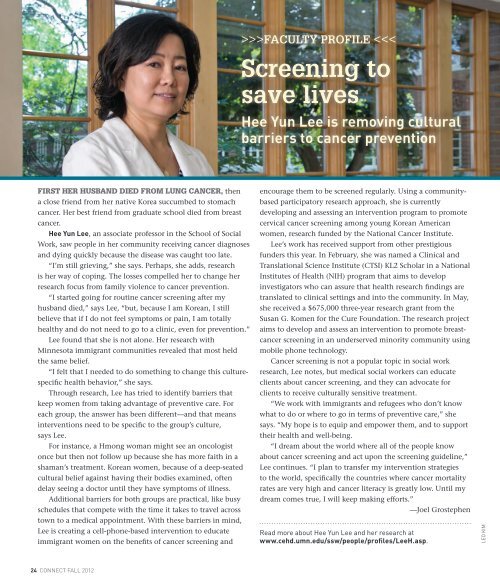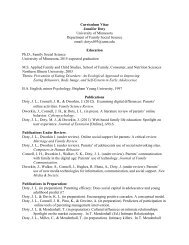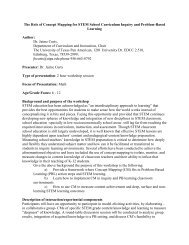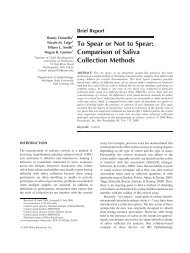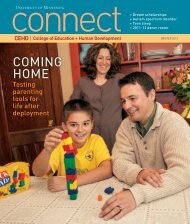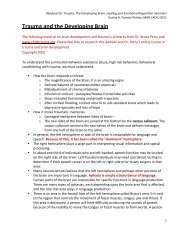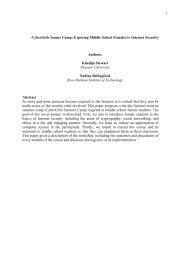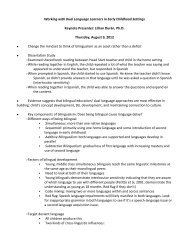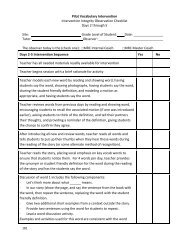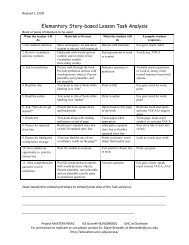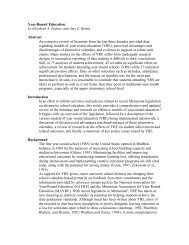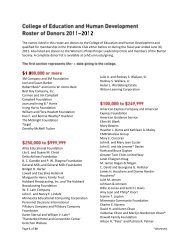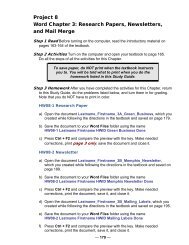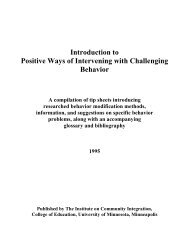Download PDF - College of Education & Human Development ...
Download PDF - College of Education & Human Development ...
Download PDF - College of Education & Human Development ...
Create successful ePaper yourself
Turn your PDF publications into a flip-book with our unique Google optimized e-Paper software.
FIRST HER HUSBAND DIED FROM LUNG CANCER, then<br />
a close friend from her native Korea succumbed to stomach<br />
cancer. Her best friend from graduate school died from breast<br />
cancer.<br />
Hee Yun Lee, an associate pr<strong>of</strong>essor in the School <strong>of</strong> Social<br />
Work, saw people in her community receiving cancer diagnoses<br />
and dying quickly because the disease was caught too late.<br />
“I’m still grieving,” she says. Perhaps, she adds, research<br />
is her way <strong>of</strong> coping. The losses compelled her to change her<br />
research focus from family violence to cancer prevention.<br />
“I started going for routine cancer screening after my<br />
husband died,” says Lee, “but, because I am Korean, I still<br />
believe that if I do not feel symptoms or pain, I am totally<br />
healthy and do not need to go to a clinic, even for prevention.”<br />
Lee found that she is not alone. Her research with<br />
Minnesota immigrant communities revealed that most held<br />
the same belief.<br />
“I felt that I needed to do something to change this culturespecific<br />
health behavior,” she says.<br />
Through research, Lee has tried to identify barriers that<br />
keep women from taking advantage <strong>of</strong> preventive care. For<br />
each group, the answer has been different—and that means<br />
interventions need to be specific to the group’s culture,<br />
says Lee.<br />
For instance, a Hmong woman might see an oncologist<br />
once but then not follow up because she has more faith in a<br />
shaman’s treatment. Korean women, because <strong>of</strong> a deep-seated<br />
cultural belief against having their bodies examined, <strong>of</strong>ten<br />
delay seeing a doctor until they have symptoms <strong>of</strong> illness.<br />
Additional barriers for both groups are practical, like busy<br />
schedules that compete with the time it takes to travel across<br />
town to a medical appointment. With these barriers in mind,<br />
Lee is creating a cell-phone-based intervention to educate<br />
immigrant women on the benefits <strong>of</strong> cancer screening and<br />
24 CONNECT FALL 2012<br />
>>>FACULTY PROFILE


